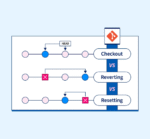Table of Contents
The digital revolution has transformed interactions and transactions for enterprises and people alike; new concepts and new efficiencies have mushroomed. Technology dependence on the one hand naturally leads to some drawbacks like the risk of cyberattacks, data breaches, and exposure to system vulnerabilities. Heavy reliance on cybersecurity analysts protects organizations against these threats. If you are pursuing this career, you may ask yourself: What topics are important to study as a cyber analyst?
We will respond to this by first defining what cybersecurity is, why it is important, and then pointing out the major areas of study that aspiring professionals might venture into.
What Is Cybersecurity?
Cybersecurity is the practice of defending systems, networks, and digital information against malicious attacks or unauthorized access. It deals with the strategies, processes, and technologies to guarantee the confidentiality, integrity, and availability of digital assets.
It includes the whole gambit from personal protection and corporate networks to national infrastructure. Cybersecurity Analysts play a frontline role in monitoring systems for malicious activities and responding to incidents.
Why Is Cybersecurity Important?
The significance of cybersecurity has increased probably given the ever-mounting advanced levels of threat posed in cyberspace. From phishing schemes to ransomware attacks of all sorts or perhaps even just plain intimidation, potential targets are really all businesses and persons. Counting on one security breach might really mean losing money, reputations, or becoming embroiled in legal affairs.
For every organization under the sun, cybersecurity ensures business continuity while conforming with data protection laws. For the individual, this acts as protection for personal information, financial data, and digital identity. Without trained expertise on the ground with formidable skill sets as cybersecurity analysts, ever so often, the digital ecosystem faces risk.
Cybersecurity Fundamentals to Learn
Every professional should start their skill acquisition from the basic concepts; nothing advanced is possible without the mastery of fundamentals. The fundamentals to be learned in cybersecurity include types of threats, basics of encryption, methods of authentication, and attack surfaces. Knowledge of these disciplines gives the analyst a sound groundbreaking basis on which to build understanding of more adult topics like cloud security and threats hunting.
Additionally, frameworks such as NIST and ISO 27001 provide structured guidelines, making them essential for analysts to study. By mastering these cybersecurity fundamentals to learn, professionals can establish a strong starting point in their careers.
Networking and Operating Systems
Networking and operating systems have been the common playfields for cyberattacks. Thus, the necessary analysis should be well versed with TCP/IP, DNS, firewalls, and VPN settings. It can only be beneficial if it gains some working knowledge of Windows, Linux, and macOS internals. These technical skills gather their importance in monitoring and securing systems for cybersecurity analysts.
Take, for example, watching packets flow across a network-the analyst can then recognize strange behavior. Knowledge of system processes allows them to connect such behavior with the act of infection by malware or an attempt at privilege escalation.
Threat Intelligence and Risk Management
Cybersecurity analysts need to learn how to collect, analyze, and operationalize threat intelligence. By studying the tactics, techniques, and procedures of their attacks, these professionals can predict and prevent cyber attacks even before the attackers mount them. Risk management holds just-as-equal importance because it offers a way for the organization to prioritize its security work based on impact and likelihood.
This ties in precisely with the skill sets pertinent to analysts, which, in turn, require critical thinking, analytical ability, and decision-making for weighing potential threats against their possible mitigative measures.
Security Tools and Technologies
The security tools and technologies must include practical experience with the security tools and techniques of today. Analysts have to work with intrusion detection systems, endpoint protection platforms, and vulnerability scanners. SIEMs, like Splunk or QRadar, are must-haves as well when it comes to monitoring logs and detecting anomalies.
These platforms form part of the technical skills for the cybersecurity analyst, and mastery makes it possible for the professional to track, analyze, and respond to suspicious behavior in a timely manner on complex networks.
Incident Response and Forensics
The analyst’s job is to limit damage and return compromised systems to operational status in short order when an attack occurs. This means knowing the incident response lifecycle: preparation, detection, containment, eradication, and recovery. They are also trained in digital forensics, which allows one to analyze the case of a breach, collect evidence, and trace the activity of the attacker.
Together, these skills form the backbone of many skills of a cybersecurity analyst so that the professionals can act immediately when there is an ongoing crisis..
Cryptography
The essentials of cryptography extend to varying fields concerning the safeguarding of sensitive information. An analyst should learn about encryption techniques, hashing algorithms, and digital certificates. With the rise of secure communications and data privacy, cryptography protects both individual and organizational data formation. Part of the fundamental cybersecurity principles to learn, cryptography ensures that analysts understand the temerity behind protecting data, either at rest or in transit.
Cloud Security
With organizations now hosting their infrastructure on AWS, Azure, or Google Cloud, cloud security takes center stage. Analysts have to study cloud-native security controls, identity and access management, and the shared responsibility model. An analyst should also be familiar with cloud misconfigurations, among the more common attack vectors.
Cloud security deep dives, therefore, require a combination of technical skills for cybersecurity analysts and knowledge of strategies to ensure compliance and operational resilience.
Ethical Hacking and Penetration Testing
Cybersecurity analysis requires its practitioners to think like attackers. Ethical hackers are engaged by analysts to stimulate an understanding of the actual attacks, to draw vulnerabilities and to recommend effective mitigation measures. Such activities commonly employ tools such as Metasploit and Kali Linux.
Thus far, these exercises sharpen their cybersecurity analyst skills to professionally fortify defenses proactively instead of waiting for the occurrence of threats.
Compliance and Legal Aspects
Laws and regulations such as GDPR, HIPAA, and PCI DSS govern how organizations come to handle sensitive data. Analysts need to know about such requirements because part of compliance also means minimizing liability. This area does not only protect organizations from sanctions but also builds trust with customers.
Cyber Defense Strategies
The analysts’ duty is to finally make the security that they would have to design. Learn about layered security models, zero-trust mechanisms, and proactive detection: these will serve as the very foundation of practical cyber defenses. Such practices would assure the organizations under ever-evolving threats.
Analysts can incorporate continuous cyber defense strategies to protect any system by combining measures of monitoring, prevention, and recovery. Alongside ongoing innovations of artificial intelligence and automation would continue polishing these highly effective cyber defense strategies against advanced cybercriminals.
Key Skills for Cybersecurity Analysts
Only Technical proficiency is not enough; other key skills for a cybersecurity analyst’s qualifications include, although not limited to, problem solving, communication, and adaptability. Analysts are always at the receiving end when the non-technical stakeholders require them to explain the technical threat. So communication becomes all the more essential.
Teamwork, attention to detail, and continuous learning are also very imperative as Cybersecurity is still a dynamic field, making professionals need to evolve with emerging technologies and threats.
Conclusion
To be successful as a cybersecurity analyst, one has to spend a great deal of time learning a wide range of areas. From the fundamentals of cybersecurity through networking, cryptography, and cloud security, through cyber defense strategies, each subject serves to strengthen one’s knowledge base and ability to protect digital assets.
Add to this a combination of excellent technical skills for cybersecurity analysts, as well as great soft skills, and such areas prepare one to enter into, today, perhaps, one of the most lucrative and impactful careers. The aspiring analysts of today continuously enhance their skills as cybersecurity analysts, which one day, will make them vital in guarding tomorrow’s digital future.
Find more content on our website here.










